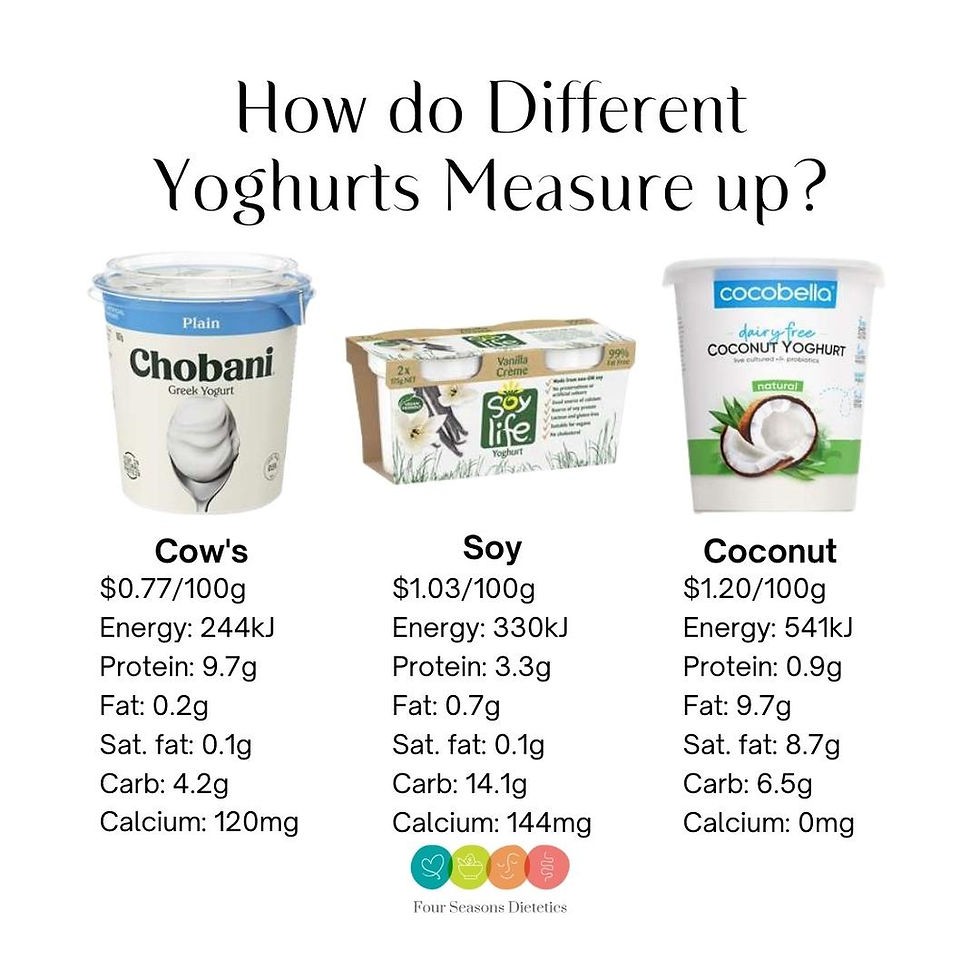Who doesn't love a good tub of yoghurt?
There are so many different types of yoghurts in the shops these days, that it can be hard to keep up!
Yoghurt is produced through the bacterial fermentation of milk. As a result of this process - it contains probiotics (the good bacteria) which have positive effects on the gut microbiome. It is also a good source of protein and calcium (only some yoghurts).
There are many types:
Natural or plain yoghurt
Flavoured yoghurt
Greek yoghurt
"Light" yoghurt
Plant-based yoghurts such as soy and coconut
The list is endless!

So what should you buy and how do you compare? The best place to look is the nutrition information panel (NIP) and check the following:
Compare protein content - cow's milk would naturally have more protein than plant-based yoghurts
Saturated fat content - high consumption of saturated fats are associated with increased risk of heart disease and chronic health conditions. Aim for less than 3g per 100g.
Carbohydrate/Sugar - Sugar would include natural sugar from the yoghurt (lactose for cow's milk), fruit (if any) and added sugar (e.g. honey, sugar, syrup). Generally aim for less than 15 per 100g. We recommend to go for plain or natural yoghurts and add fruit if you prefer a sweet option.
Calcium - Look for the higher calcium option, yoghurt made from cow's milk and soy milk would naturally have more calcium than coconut or almond (often none).
Cost - what is your budget? compare costs by 100g which you can often spot on the price tag at the supermarkets.
Here are three examples:

The clear winner nutritionally & cost-wise is the cow's milk plain Greek yoghurt with 9.7% protein, low saturated fat and carbohydrates, high calcium content and overall lower energy content (this is a lower-fat style Greek yoghurt which greatly brings down the energy content).
Soy yoghurt is a good alternative for those unable to consume dairy, with low saturated fat content and high calcium.
Coconut yoghurt is quite high in saturated fat and does not provide any calcium. Keep in mind portion sizes if you like to use this yoghurt.
Did this post change your mind about which yoghurt to purchase?
At Four Seasons Dietetics, our dietitians are experienced with managing a range chronic health conditions. Book an appointment here to start your health journey with us.
